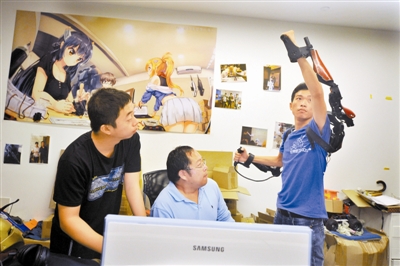- Qianhai makes efforts to attract HK talents
-
Source :Shenzhen Daily
It seems farfetched that Hong Kong talents would choose to work and stay in cities on the Chinese mainland. But now that is highly plausible in Qianhai, Shenzhen.

To appeal to and better accommodate top talent, Qianhai resorted to many a method. International schools were planned, hospitals set up and preferential policies put forward. It also established an innovation hub, aimed at hatching startups and newborn projects with big potential.
A news report by Nanfang Daily showed 167 people in Qianhai this year were considered as overseas top talent in the first half year of 2016. The number is twice that of 2015, among which over 40 percent hold Hong Kong citizenship. The total number is now 261, with 74 being Hong Kongers.
“The municipal government will pay for the portion of tax money that exceeds 15 percent of these talents’ personal income,” said a staff member from Qianhai’s human resources department. It further unveiled such tax subsidies will go up to 60 million yuan, tripling last year’s number.
Moreover, Hong Kongers who are leaders of vital projects in Qianhai can gain further subsidies. And overseas talents can apply for permanent residency on the Chinese mainland easier.
With the number of Hong Kong talents growing, Qianhai released an education plan this year. It said the first international school will be launched next year. By the end of 2020, Qianhai will build three to five more similar schools, offering 5,000 places.
A Hong Kong research team made that plan based on 18 months of research, including field trips in Beijing, Shanghai and Hong Kong. They adopted a calculation method used by Hong Kong education bureau to predict the growth rate of international schools.
Guan Junhua is a team member and also director of Junior Chamber International Hong Kong. He believed Qianhai should not neglect the need for school places for the floating population, and should refer to the private school system in Hong Kong. Concerning campus rent, Guan suggested a preferential policy should be released. He then advised the educational certificates in Qianhai, such as teaching certificates, should be recognized in Hong Kong, and vice versa.
Besides education, Qianhai has made efforts to upgrade its medical system. The first traditional Chinese medicine (TCM) group, Mingyihui, was founded in Qianhai in July. Its founder was Yan Biaohua, who has over a decade’s work experience in public hospitals. A Chinese report said Yan had started another private TCM institute formerly. According to him, the TCM group is intended to provide qualified TCM doctors to those in need.
Early in March, Qianhai unveiled that it will build a precision medical institute in collaboration with CL Investment Group. The institute will mainly engage in genetic tests for couples, expectant mothers, newborn babies, and for tumor detection.
Liu Ruyin, chairman of CL Investment, said the genetic test services for expectant mothers will be on the market this year. Others will be rolled out next year. According to him, the newest technology lowers the cost of genetic test by 50 percent, which means expectant moms may only need to pay 1,000 yuan for a test in the near future.
Director of the Qianhai Authority, Du Peng, said the area will embrace more medical firms with preferential policies, talent subsidies and a yearly financial support of up to 1.6 billion yuan. Companies that research genetic tests, stem cells and functional protein will gain tax-related subsidies.
Qianhai also launched an innovation hub called Qianhai Shenzhen-Hong Kong Youth Innovation and Entrepreneur Hub. Currently, 163 startups, including 52 from Hong Kong, are located there. (Zhang Xiaoyi)
2016-08-26 15:05:00Attachment Download

 粤公网安备 44030502003702号
粤公网安备 44030502003702号